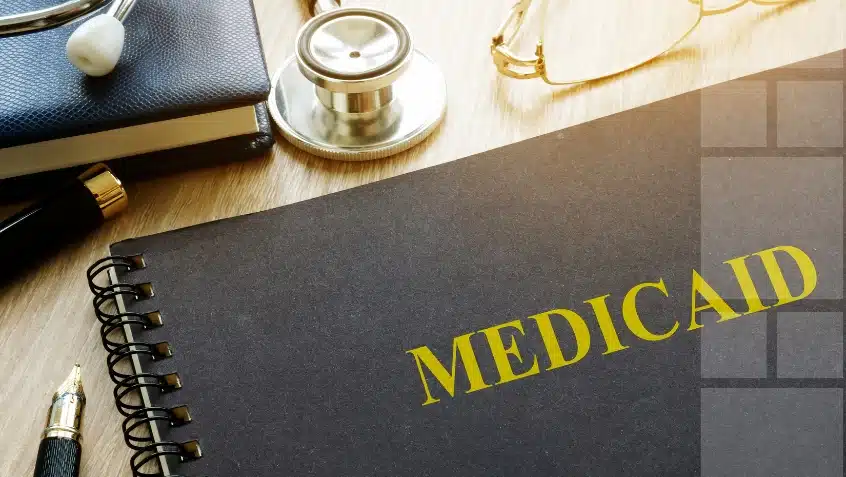Join Us Live for a Discussion on Medicare, Democracy, and the Future of Health Care
Block Grants Cut Medicaid and Put Millions at Risk

Today, the Trump administration released guidance to help states convert some of their federal Medicaid funding into a block grant. In exchange for accepting this capped funding, states will receive more power to cut care and restrict coverage.
This new structure, billed as a voluntary demonstration for states, can apply to funding for optional Medicaid populations: low-income adults under the age of 65 who wouldn’t otherwise be eligible for the program. This includes adults in the Medicaid expansion population, though non-expansion states that voluntarily cover other adults—such as low-income parents with incomes above the traditional Medicaid threshold and adults with dependent children—may also participate.
While children, low-income pregnant women, older adults, and people with disabilities will continue to be covered under Medicaid’s traditional, open-ended financing structure, the changes announced today will nevertheless put their access to providers and needed care at risk.
The Medicaid program, now over half a century old, is a success story. Through Medicaid, millions of low-income Americans have built well-being and gained greater economic security via access to health insurance. This coverage helps guarantee health care to 12 million older adults and people with disabilities who also rely on Medicare. In states that have chosen the life-saving and cost-effective option of Medicaid expansion, over 13 million people have gained coverage. A recent study found that Medicaid expansion has saved at least 19,000 lives in states that have taken up this option. By contrast, the rejection of expansion in some states has led to 15,000 deaths that could have been prevented.
Currently, Medicaid is jointly funded by the federal government and the states, with funding increasing when the state sees an increase in need and decreasing when there is less need. With its block grant initiative, the Trump administration is upending this federal-state partnership. This will likely destroy many of the protections people with Medicaid rely on to keep their care accessible and safe. The conversion of federal funding into an inflexible block grant could spur cuts in state funding for Medicaid coverage while removing the state’s accountability to provide the coverage Medicaid is explicitly designed to provide. For example, states may slash already low provider payments—potentially causing fewer providers accepting Medicaid—and limit access to prescription drugs through a closed formulary. In addition, the new program makes it easier for states to seek permission to implement policies for which they need 1115 waivers, such as work requirements, premium and cost-sharing increases, and coverage limitations.
The initiative is, in part, aimed at the Medicaid expansion population, a frequent target for this administration, and will weaken the coverage the expansion provides. Medicaid expansion has been very popular as polling indicates that voters in non-expansion states want the economic and health care benefits that expansion states enjoy. One of those benefits is the prevention of rural hospital closures, and the administration’s guidance puts access to these providers at risk. In addition, the proposal will erect new barriers for people obtaining and maintaining coverage, which ultimately means worse care, worse health, and a corrosion of well-being for low-income individuals and families.
Though unveiled today, litigation could still halt the new policy. Legal advocacy groups are currently reviewing the proposal and weighing next steps.
At the Medicare Rights Center, we strongly oppose capped Medicaid funding and the Trump administration’s new state guidance. Such an approach is at odds with the objectives of the Medicaid program, as it will reduce care quality and coverage. We are greatly concerned about the impacts this change will have on Medicaid and those who rely on its coverage—both the populations who are directly at risk and those who will feel the ripple effects, such as dual eligibles. If as a result of this policy more hospitals close, more providers refuse Medicaid, or more people reach their older years uninsured, the repercussions for people’s health and economic stability, as well as the damage to the Medicare program, will be lasting and severe.
Read the Trump administration’s announcement of the block grant initiative.
Show Comments
We welcome thoughtful, respectful discussion on our website. To maintain a safe and constructive environment, comments that include profanity or violent, threatening language will be hidden. We may ban commentors who repeatedly cross these guidelines.
Help Us Protect & Strengthen Medicare
Donate today and make a lasting impact
More than 67 million people rely on Medicare—but many still face barriers to the care they need. With your support, we provide free, unbiased help to people navigating Medicare and work across the country with federal and state advocates to protect Medicare’s future and address the needs of those it serves.
The Latest
Most Read
Add Medicare to Your Inbox
Sign up to receive Medicare news, policy developments, and other useful updates from the Medicare Rights.
View this profile on InstagramMedicare Rights Center (@medicarerights) • Instagram photos and videos









